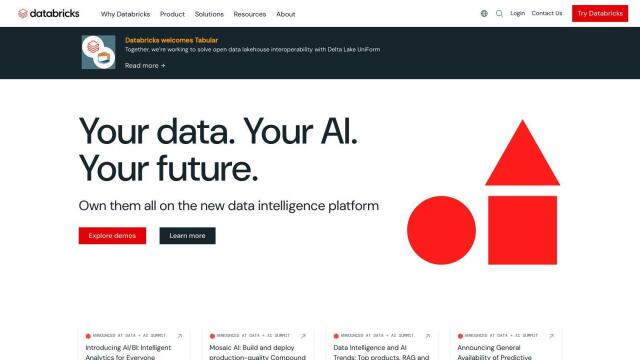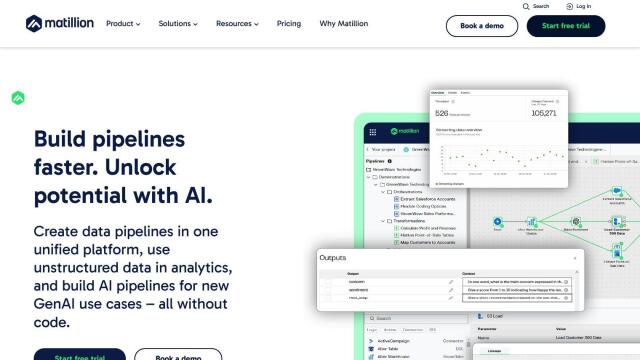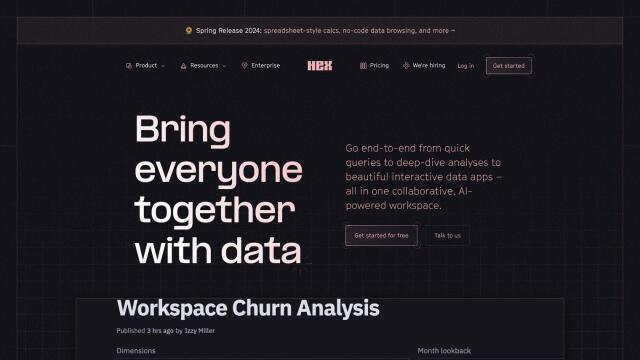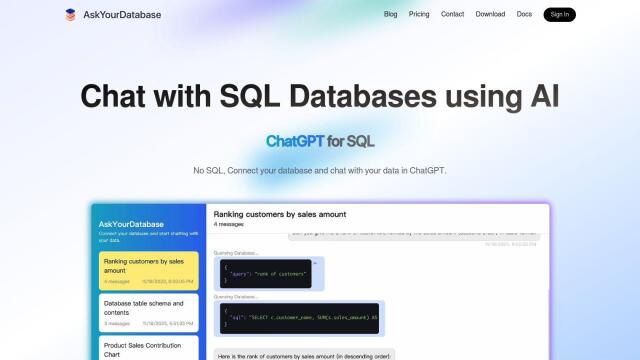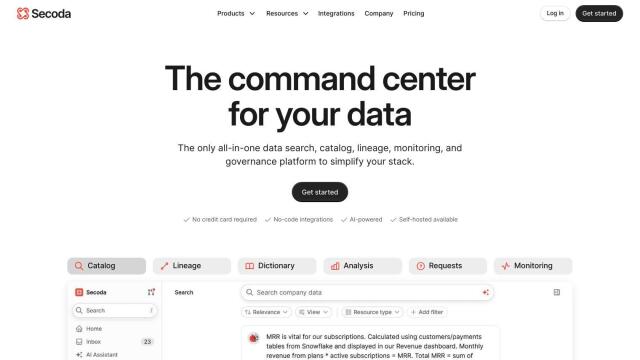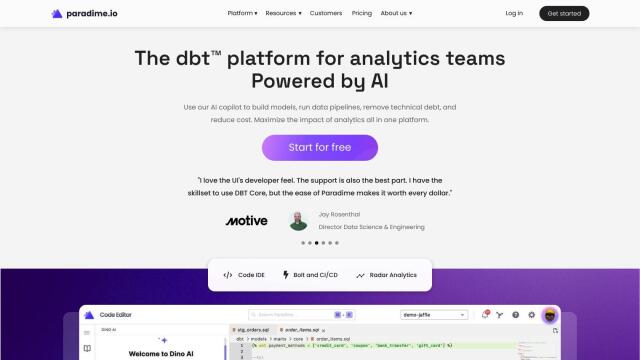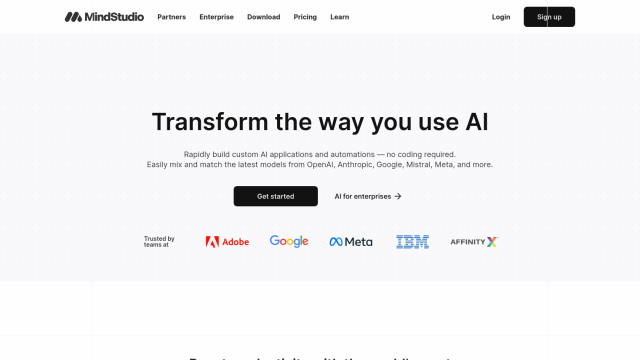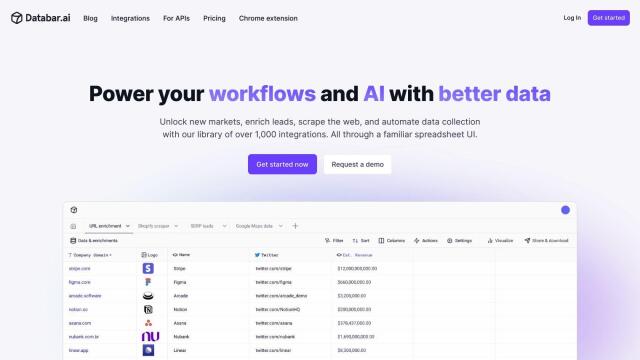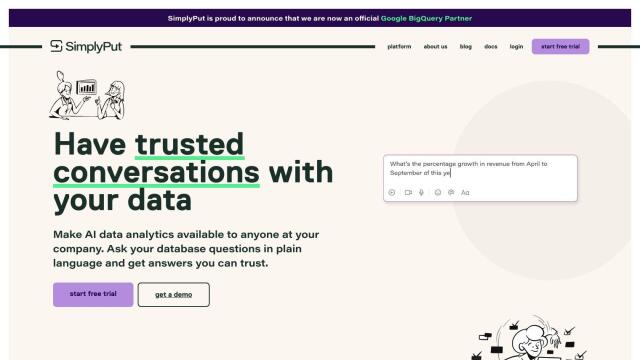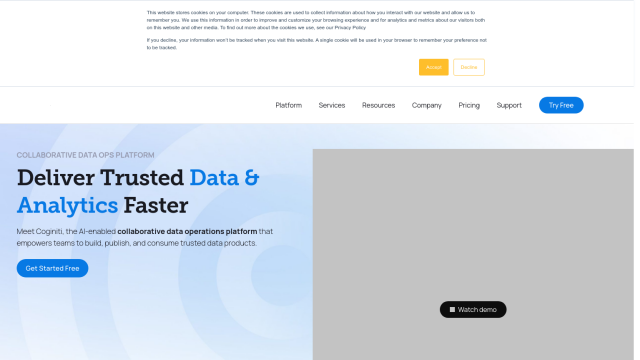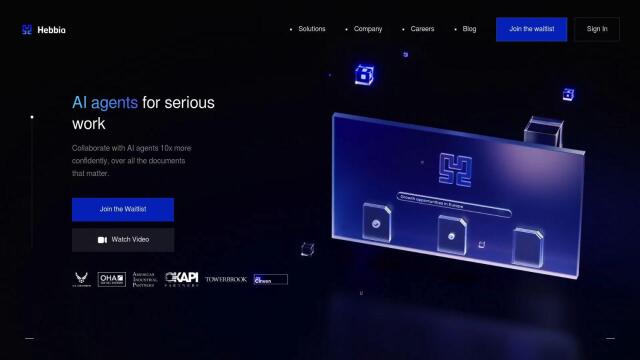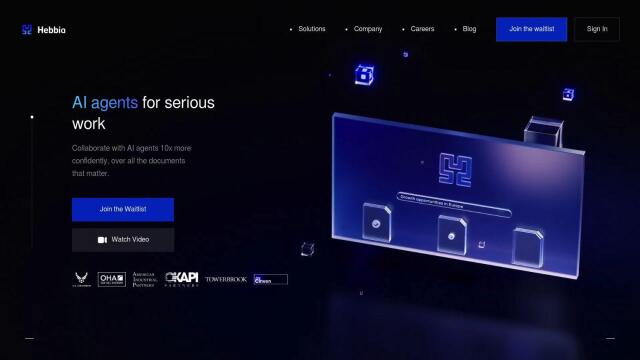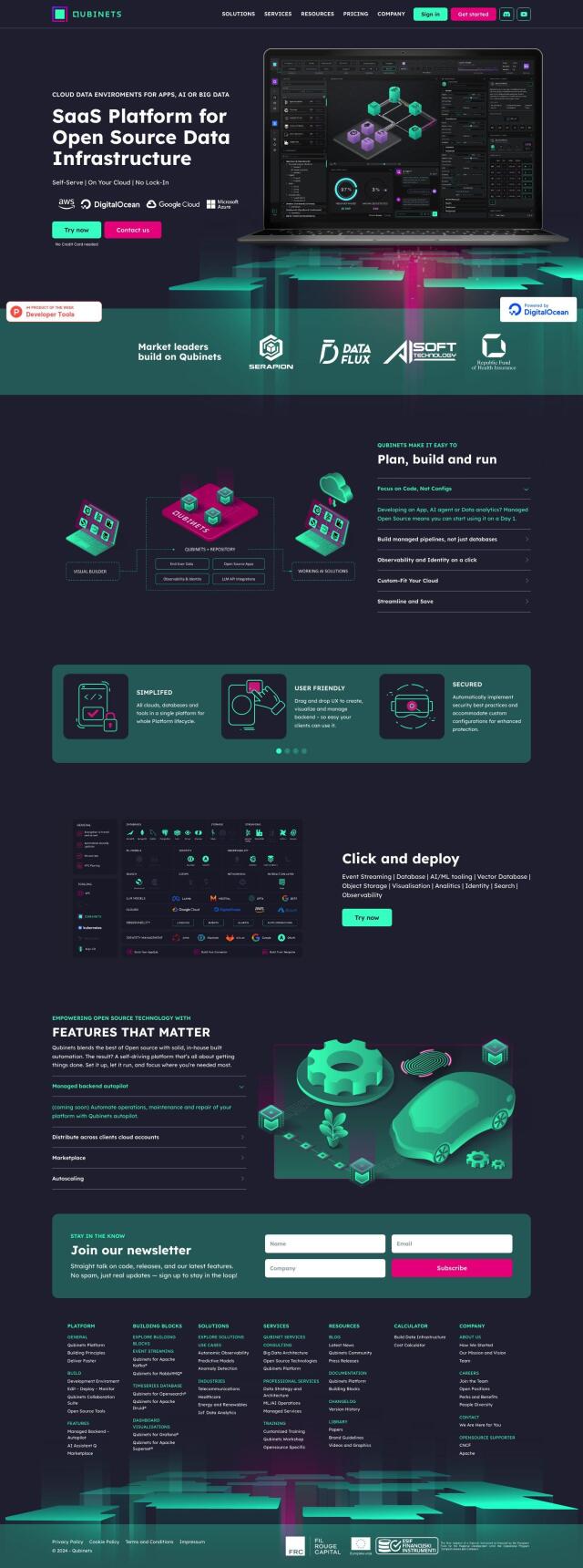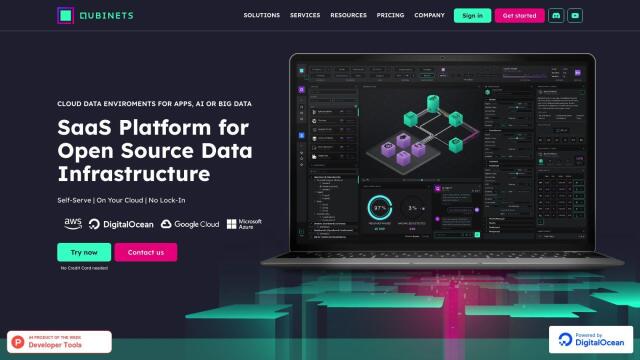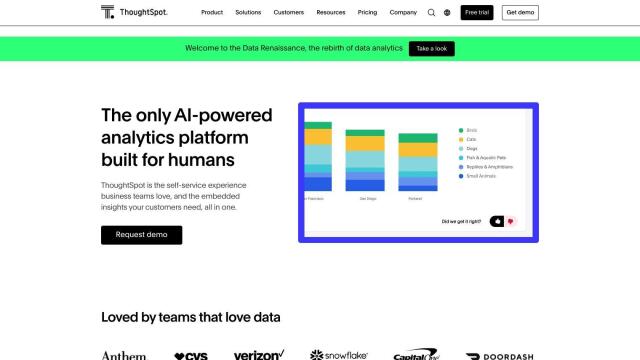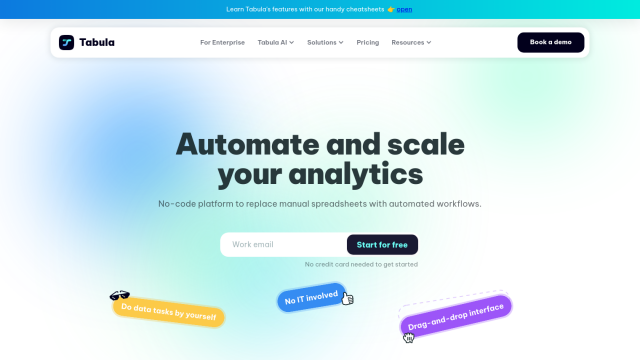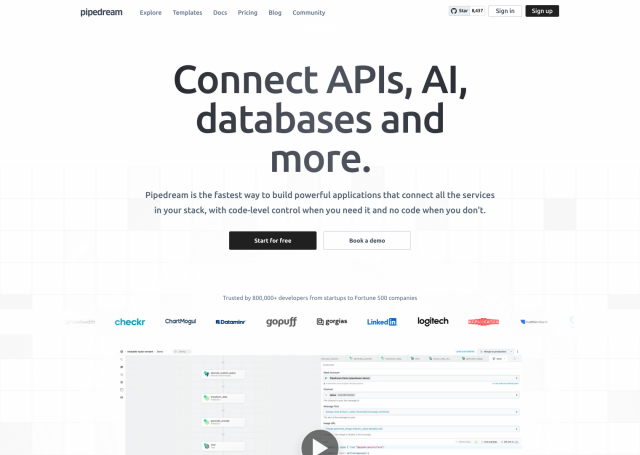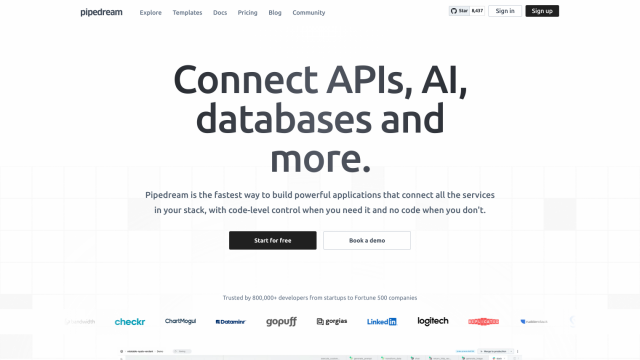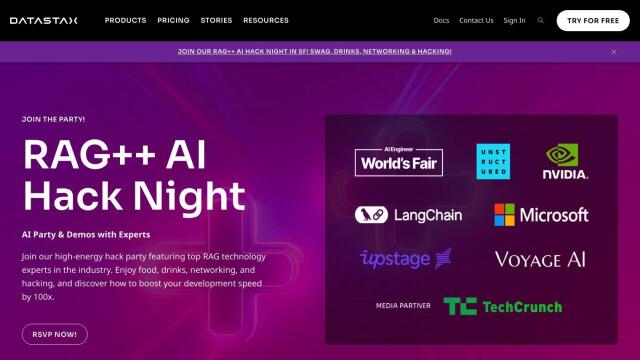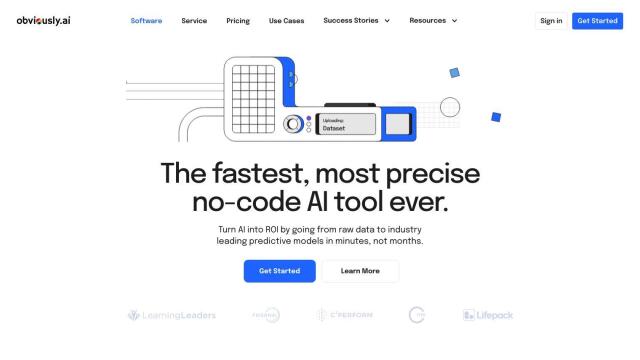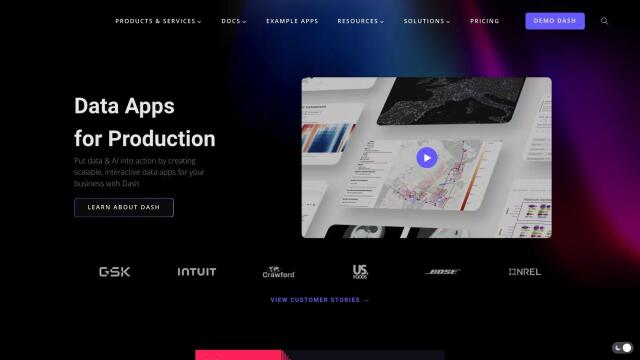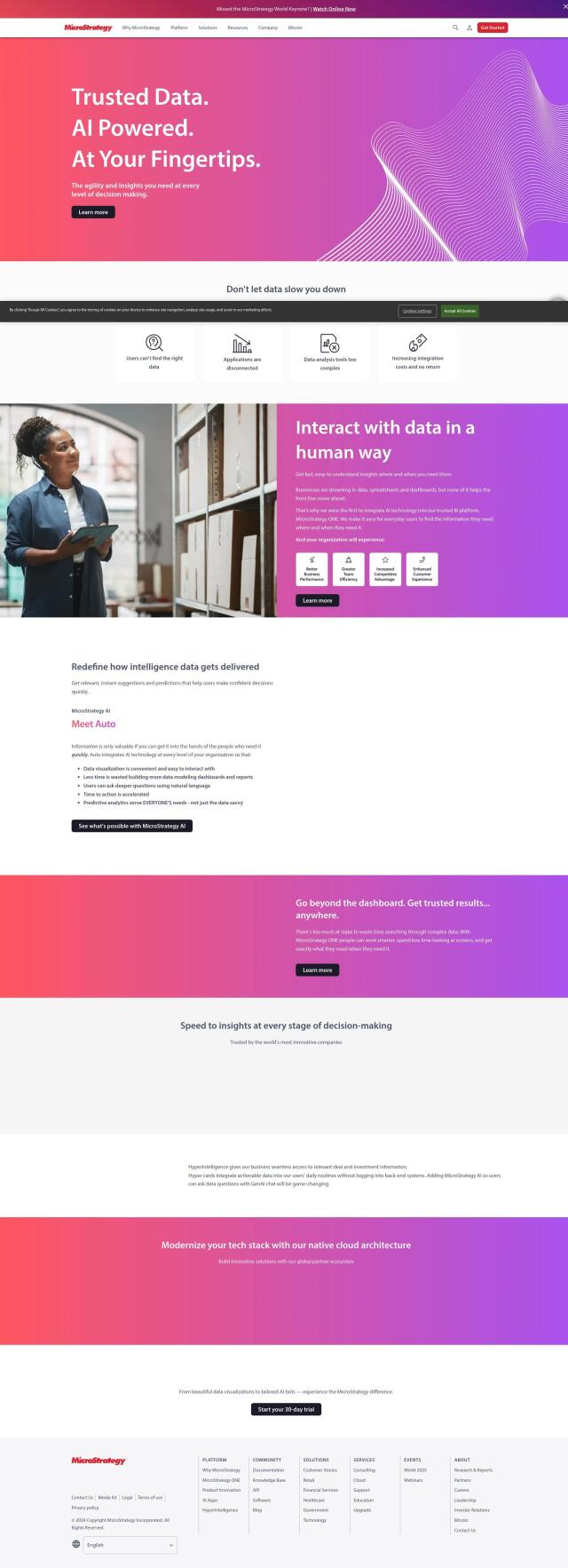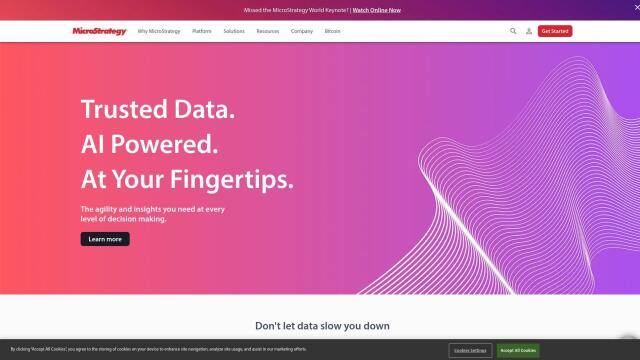Question: I'm looking for a tool that can integrate with various data sources like APIs and databases, and also provides an opinionated UI/UX framework.

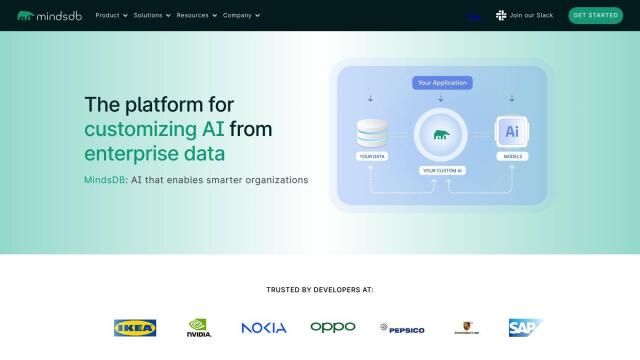
MindsDB
If you want a tool that can tap into many data sources but also offers an opinionated UI/UX framework, MindsDB is worth a look. MindsDB lets developers create fast, secure and scalable AI-powered applications by tapping into a range of data sources and popular AI/ML frameworks. It supports more than 200 data integrations and offers features like multiple AI engines, model management, automation, observability, scalability, security and customization, making it a good choice for companies that want to quickly adopt AI and automate business processes.

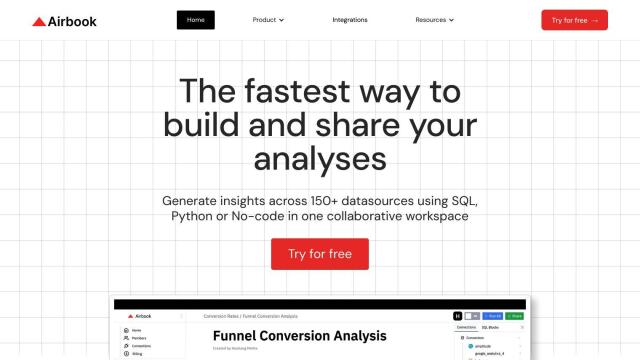
Airbook
Another good option is Airbook, a collaborative data workspace that's designed to speed up data analysis and insights creation across teams. Airbook can tap into more than 150 data sources with native connectors and offers features like collaborative workspaces, visualization, query saving and reuse, version control, chained queries and a chart builder. It supports a wide range of integrations including AWS CloudTrail, Amazon Redshift, Facebook Ads and Google Analytics, so it can be used for a variety of use cases like marketing, sales, product, customer and financial analytics.
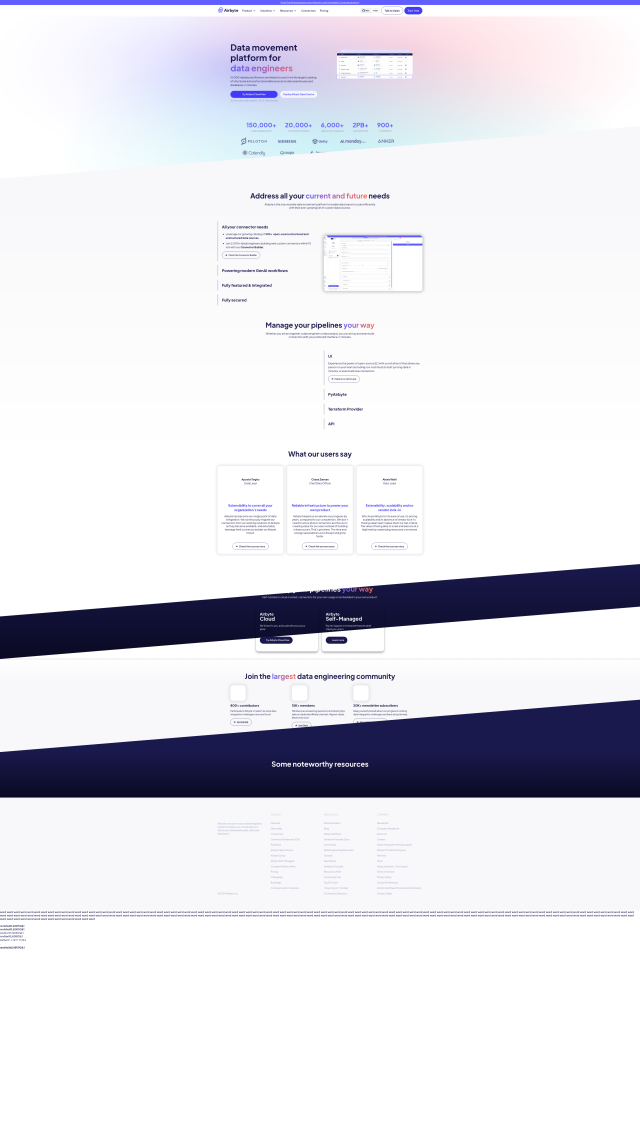
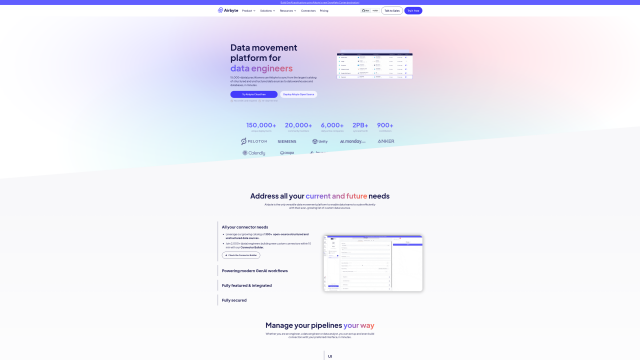
Airbyte
If you need a general-purpose data integration platform, Airbyte is an open-source tool that can pull data from more than 300 structured and unstructured sources and push it to many destinations. It includes a Connector Builder for custom connectors and supports integrations with services like OpenAI and dbt. Airbyte has security features like single sign-on, role-based access control and compliance with major data privacy regulations, so it's good for large-scale data integration needs or smaller-scale data integration projects.

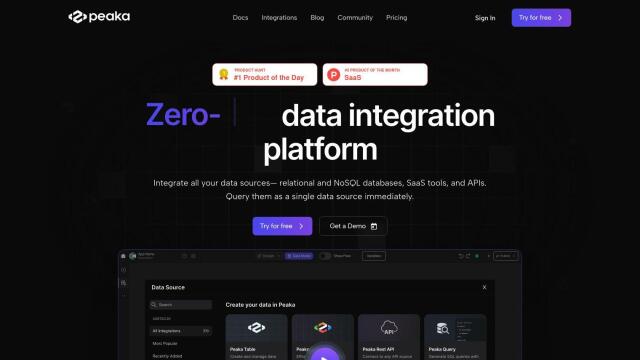
Peaka
Finally, Peaka offers an easy-to-use interface for integrating different data sources, including relational and NoSQL databases, SaaS applications and APIs. Peaka offers federated query, streaming ingestion and immediate replication with Change Data Capture. It can tap into services like Stripe, MySQL and Google Sheets and supports self-service integration with a range of connectors, which can make data integration easier and less expensive. That can help with data democratization and better decision-making.



